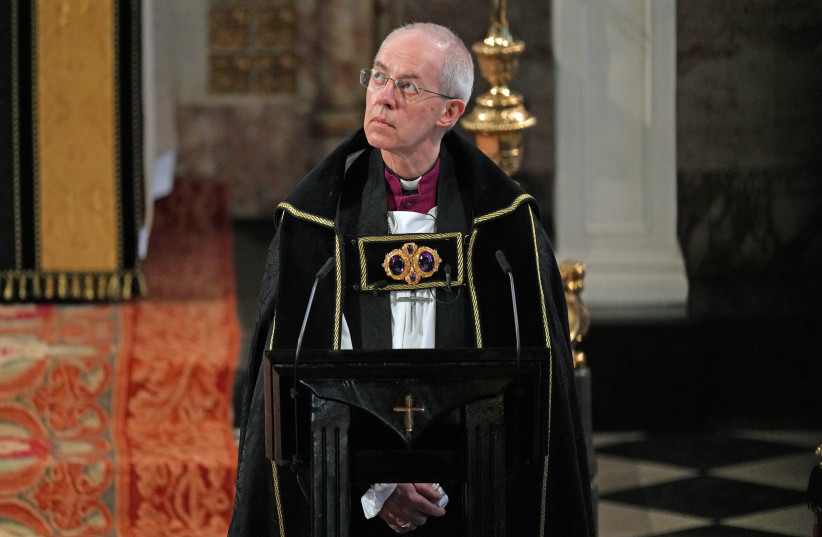The Church of England has apologized for the anti-Jewish laws that the Catholic Church in England passed 800 years ago.
The event marks the anniversary of the 1222 Synod of Oxford, which culminated in the expulsion of England’s Jews 68 years later, followed by similar repercussions across Europe.
The event was attended by civic dignitaries and faith leaders, including Chief Britain’s Rabbi Ephraim Mirvis and representatives of Archbishop of Canterbury Justin Welby.
In promulgating the decrees of the Fourth Lateran Council (1215) the Synod added a range of further anti-Jewish measures for the medieval church in England. The resulting canons forbade social interactions between Jews and Christians, established specific church tithes on Jews and imposed the need for English Jews to wear an identifying badge. These prejudicial laws were followed by further anti-Jewish statutes and the mass expulsion of the Jewish community.
This anniversary, arranged in association with the Oxford Jewish Congregation, offers a symbolic opportunity to apologize for these actions. It also recognizes the positive re-framing of Jewish-Christian relations since the publication of Nostra Aetate (‘In Our Time’), a report of the Second Vatican Council in 1965 which states: ‘This Synod… deplores and condemns hatred and persecutions of Jews, whether they arose in former or in our own days’.

This understanding was reinforced by Welby’s call, in the 2019 Church of England report, God’s Unfailing Word, that :”only by looking back and recognizing our failures as Christians can we begin to move forward with authenticity.”
Mirvis, in his afterword to this report, emphasized that profound friendship must be accompanied by honesty so that together we may be a blessing to the world.
A press release by the Diocese of Oxford said that “Our intention is for this commemoration to be a strong signal of such rich potential, reflected in the depth of interfaith encounter and service that increasingly exists in Oxford and across our society.”
In a tweet on Sunday, Archbishop Welby stated that “Today’s service at Oxford Cathedral is an opportunity to remember, repent and rebuild. Let us pray it inspires Christians today to reject contemporary forms of anti-Judaism and antisemitism and to appreciate and receive the gift of our Jewish neighbors.”
In an interview with The Telegraph, the Bishop of Oxford said on Saturday that he was “disturbed” by antisemitism that “grew” under Jeremy Corbyn as former chairman of the Labor Party.
